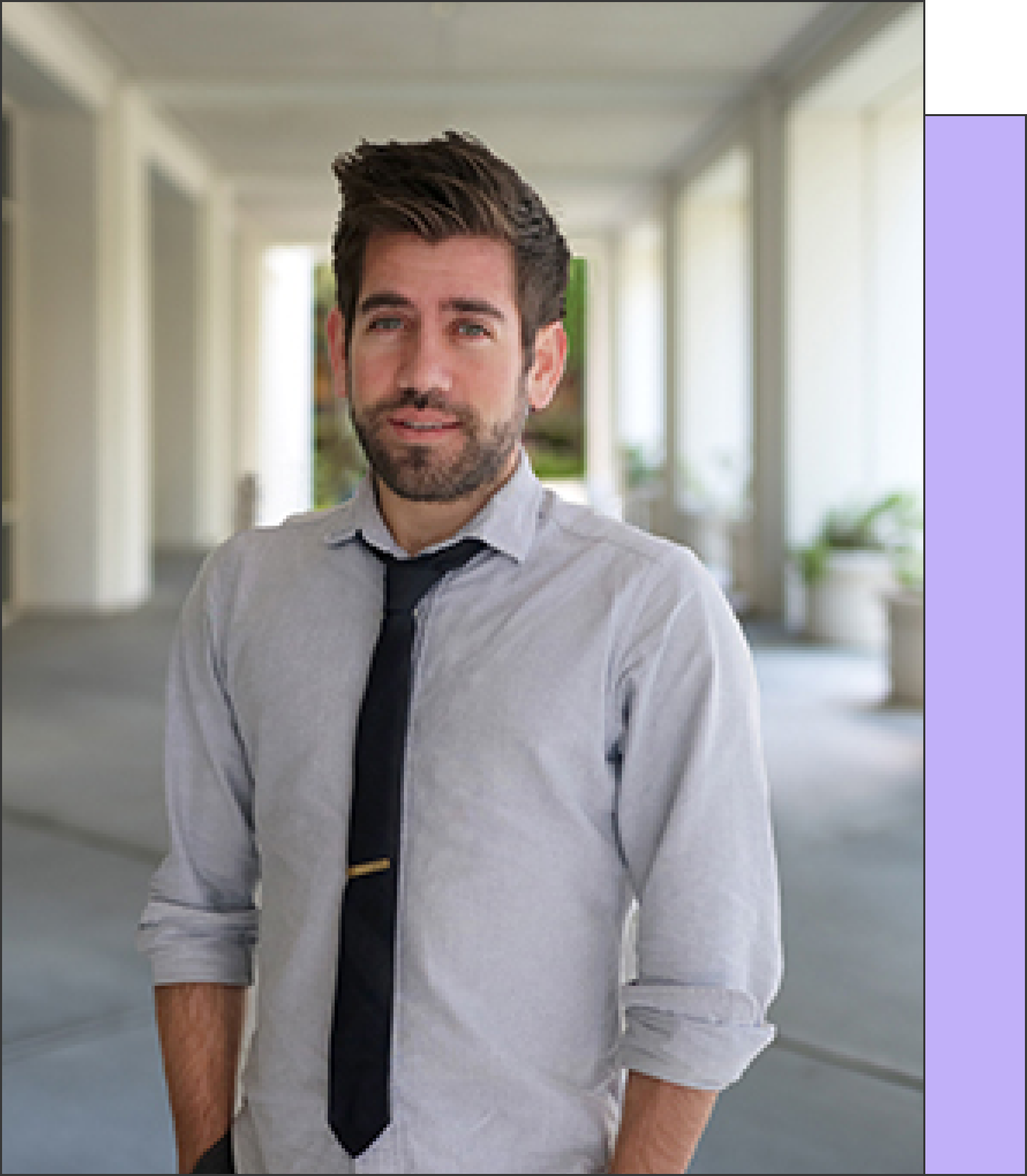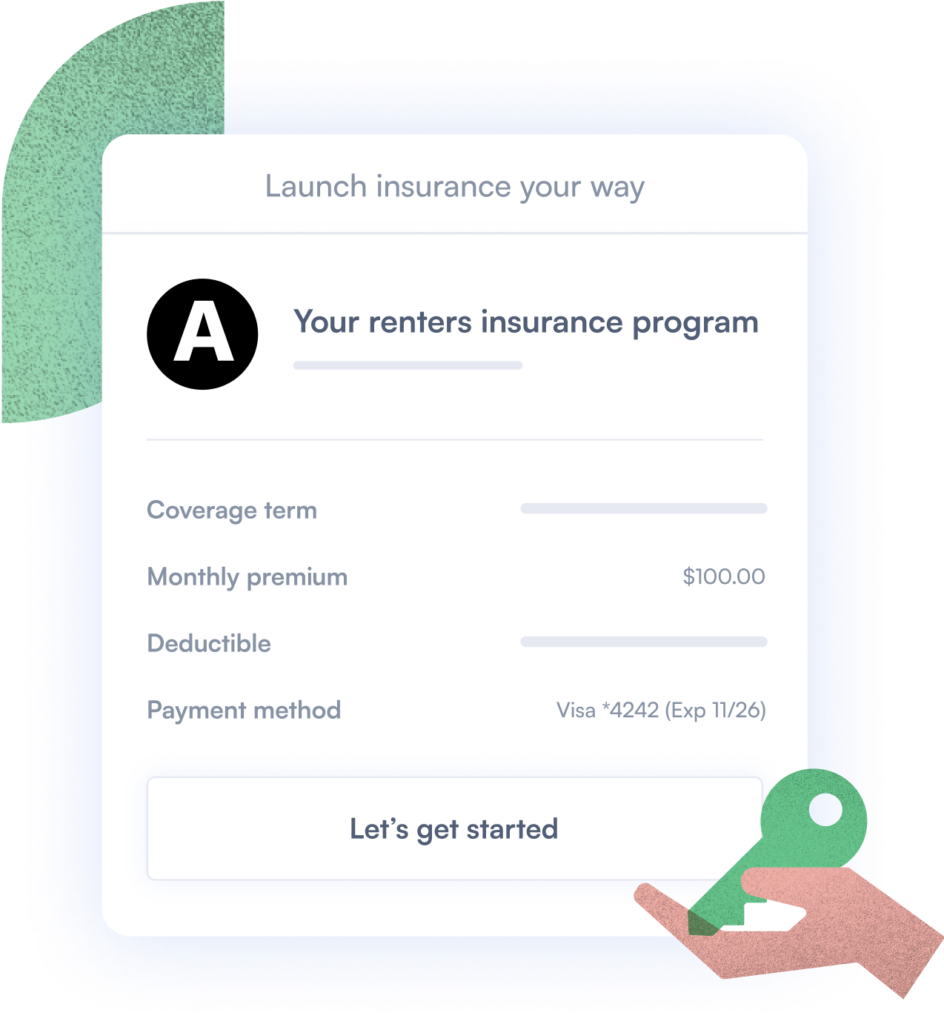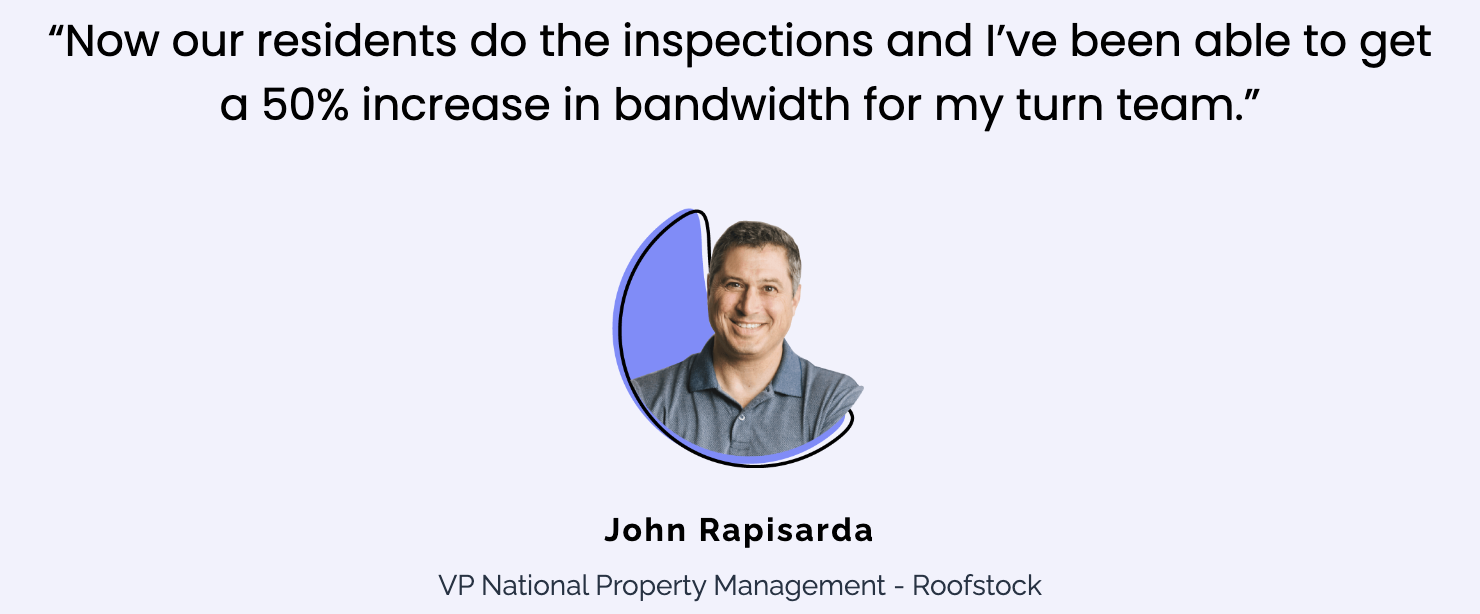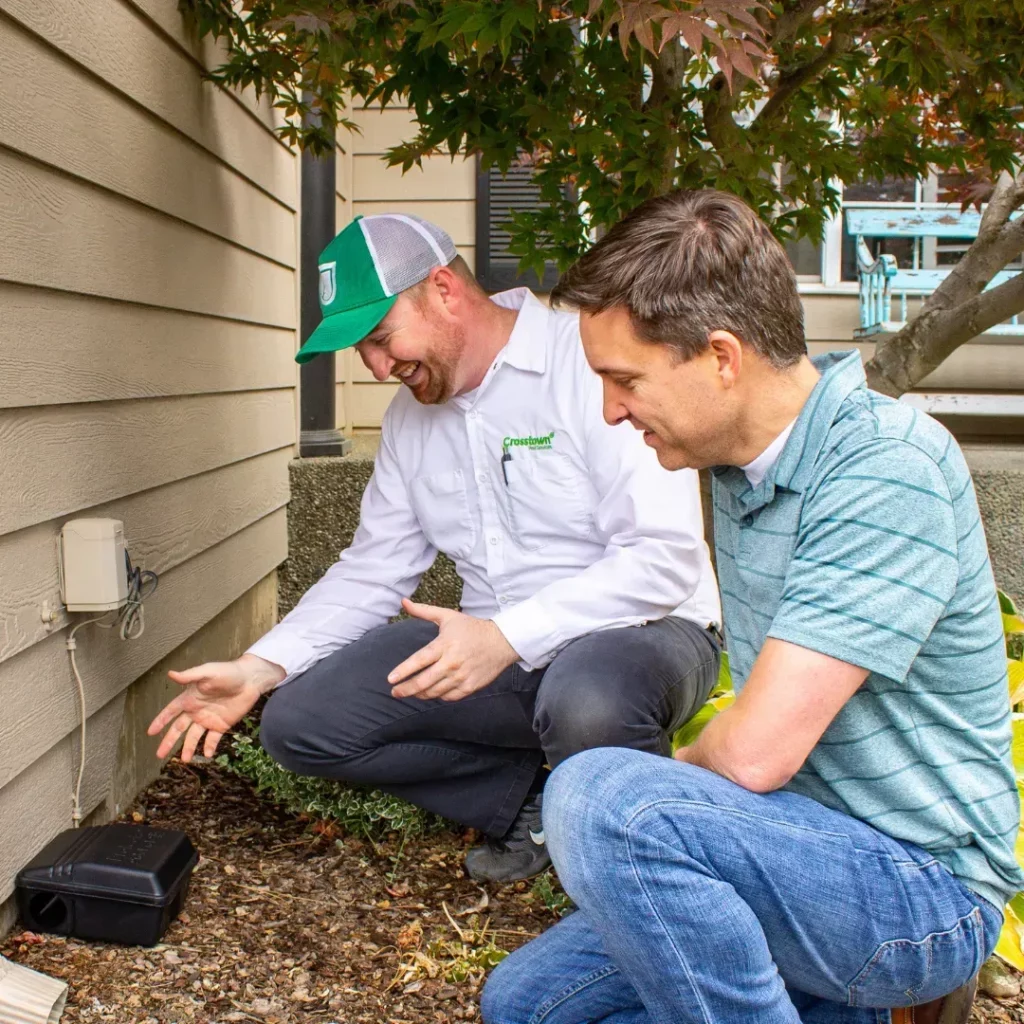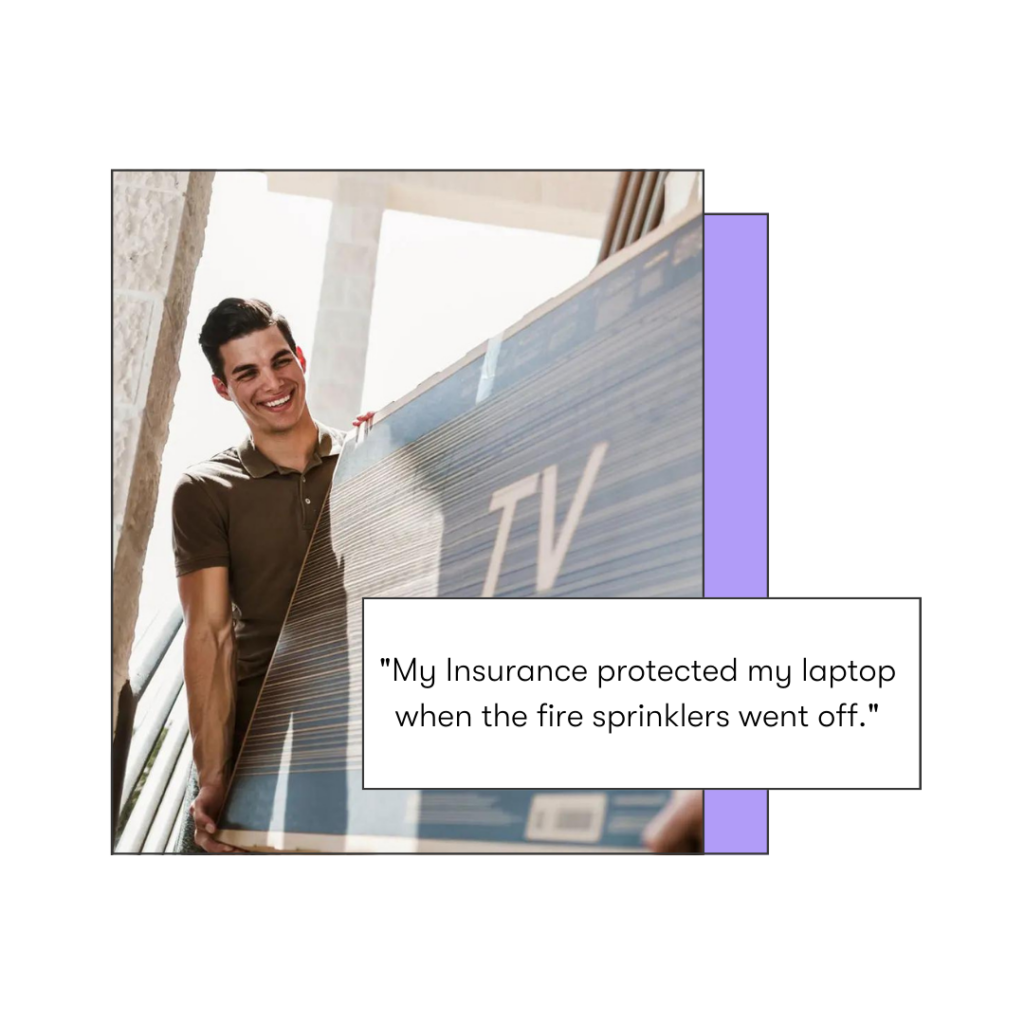Can Property Managers scale and grow their business without putting in 40, 50, 60+ hour work weeks?
We know of at least one who has done it! And, luckily for the rest of us, she wrote an entire book detailing her approach.
In this session, Andrea Hardaway talks through her experience as a business coach in the corporate world, and how she’s applied many of the same principles to her company, First Property Management, to be able to truly step out of the day to day operations and set her business up with the right people and processes to scale without the burnout.
Her new book, Property Management Freedom is set to release in May!
*** BONUS*** We’re giving away FREE copies of her book upon release. Make sure to subscribe to our weekly newsletter at PropertyBrew.co to get the details on how you can win your free copy!
Listen In:
Watch the Recording:
Read the Full Transcript:
Ethan Lieber:
All right. Hey, everybody. Welcome to this session of The Latchel Property Management Podcast. I’m Ethan Lieber, the CEO of Latchel, and I’m here with our guest today, Andrea Hardaway, founder of Property Management Freedom. It’s a company focused on helping property management company owners grow and scale their business, along with a long career and growth strategy. Andrea is also part of… She’s a partner at First Property Management, which is managing over a thousand units through Tennessee and Georgia.
Ethan Lieber:
And she’s the author of Property Management Freedom, her new book which is going to drop in stores next month. She’s come on to talk about her experience, moving from an owner operator to a true business owner. And she’s going to be talking about her formulated approach to helping other business owners achieve the same freedom she has. Andrea, I’m super excited to have you on the show, welcome.
Andrea Hardaway:
Thank you so much, Ethan. I’m so excited to be here.
Ethan Lieber:
Now, for a bit of a back ground for our listeners, because we know each other super well. But for everyone else, could you start by maybe just giving us the elevator pitch of Property Management Freedom?
Andrea Hardaway:
Yeah, definitely. So I thank you for giving the teaser about the book. So the book is Property Management Freedom, grow your property management company without burning yourself out. And essentially, this book is focused on helping owners and brokers of property management companies move themselves out of day-to-day operations, if that’s what they want to do. Move themselves out of day-to-day operations so that they aren’t the bottleneck and they aren’t working the 40, 50, 60, 70-plus-hour work weeks just to keep things going, and instead allowing them to spend their time operating more strategically, focused on intentionally growing their company.
Ethan Lieber:
Well, I think all of our listeners, most of them aren’t masochists. So I think they’re all looking to get out of the day-to-day operations and do exactly what you’ve done. I’m really excited to dig into the book and some of the learning you’ve had. Let’s maybe crystallize for the listeners how you actually gain this experience. And I know you’ve been at First Property Management a long time, you’re a partner at First Property Management, I don’t think that’s what your role is when you started this. So maybe you can talk us through your experience there.
Andrea Hardaway:
So I will tell you, our company, I think we’re about seven years old now. When we first started this company, I had no idea what property management was. I was a beginning real estate investor, but I joined The Real Estate Investor Association’s board. I’d met two people on the board. They were pretty impressed with my business savvy and they said, “Hey, we’re starting a property management company, you want to come along?” And I just said, “How much money ensure?” So I knew they were successful in what they were doing, so I felt that I could learn from them.
Andrea Hardaway:
So we started our company back then, but I was still working my full-time job in corporate America, doing all the things you do. I had actually gone back to school to get my executive MBA in Healthcare Leadership. So I was really focused on building out my professional life and having the real estate investments and the property management company be things. They tell you to build wealth, you need to have multiple sources of revenue. So that was my mindset. I wasn’t going to be full-time here, but I just wanted to be a part of something that would help me have multiple sources.
Andrea Hardaway:
Well, then what happened was I began being approached for contract work because of some of the work I was doing in corporate. So I started traveling around quite a bit consulting with large organizations as an interim executive. And my role was to come in and create and deploy strategic plans to improve processes, to launch new organizations within operations and ultimately to help the companies be more and more profitable. That was great for a time, but my own company had some needs at the time that we’ll talk a little bit more about.
Andrea Hardaway:
So I was rocking and rolling all over this country and my awesome business partner, Brian Levredge who I hope some of you listening may meet him at an upcoming conference. And if you see me, come and say hello too, by the way, but yeah, so Brian was running the company and he started the day-to-day and he was the one that was in the grind very early on.
Ethan Lieber:
Yeah, we’ve talked about your process expertise a lot, and we’ve talked about Six Sigma and how you’ve taken almost more what to most people would probably feel like academic strategy and process, and you’ve actually truly applied this in many different business formats, of course, property management being the big one. I’m curious, in that shift from joining almost like a consultant, not really, but I don’t know you were brought in full-time to First Property Management and you’re consulting with other companies.
Ethan Lieber:
I think academically and theoretically, it’s easy to understand, “Hey, all this process work is about making companies more profitable, more efficient, more scalable.” But I think for a lot of businesses owners, it’s hard to connect. How can the process stuff really impact the profitability part? Why can’t I just focus on growing, adding more doors, just getting more dollars. Can you maybe just fill that gap for folks that are curious, like, “Why is all this process stuff important?”
Andrea Hardaway:
Yeah, definitely, Ethan. That’s a great question. And it is one I’ve had conversations around tons of time especially with my background in corporate America. So the conversation would be, “Hey, your experience is in corporate America, property management companies are often privately held entities. How can this translate? Does it translate? Does it matter?” Well, it absolutely does matter. So sure, you can grow with whatever processes you have in place. And usually what you’re going to see if you don’t refine those processes, it’s the more you grow, and keep in mind for property management, when I say growth, this is really important.
Andrea Hardaway:
I’m not talking about assigning team members. I’m talking about generating more revenue. So the growth of taking on more clients or existing clients getting more property or launching services that bring you in more revenue, all of those things also increase the operational burden on your company. So what happens is your capacity to do and your capacity to deliver exceptionally becomes limited, and you begin making mistakes and errors that can be costly. So you’ll find that as you churn business out, business coming in may not be the same and you may end up being stagnant over time.
Andrea Hardaway:
There’ll be some that say, “You know what, Andrea? I hear you, but we’ve still grown. We’ve done well. We’re not touching our processes.” And to them, I say, “That’s great, but do you know the difference between growth and scaling and what do you want to do?” Growth is incremental, scaling is exponential. And that’s what you really want in the property management industry when you are looking at profitability, and looking at your capability to deliver services. You want to be able to have the capacity to take on a magnitude, more of things without increasing your operational expense to do that.
Andrea Hardaway:
So that’s why it is so important to focus on processes. And I will say, I’m sure I went into my corporate speak a little bit there because that’s what’s natural to me, but the bottom line is I’ve done this in the non-profit sector, I’ve done it in corporate America, and now I’ve been privileged to work with other privately owned business is mainly in the service industry space, but especially with my own property management company. And I’m telling you, there is no downside to focusing on processes.
Ethan Lieber:
I think a lot of folks probably, maybe accidentally had this introduction to the importance of process in the connection to being able to scale when COVID-19 hit. And we all had to make a lot of important adjustments to personal lives, business, as things went remote, you couldn’t just ad hoc it anymore. Figuring out what to do all together in an office as folks had to go remote, it was like, “Wow, we need to figure things out.” And I know that you actually made a lot of shifts yourself in what you were focusing on.
Ethan Lieber:
I think it was right around COVID-19 of course, when you had to stop traveling, you tapered down helping other companies and you were focusing on helping your partnership at First Property Management and expanding that company. Maybe you can just dive a little bit more into why at that time it became so important to you to re-focus on the management company and maybe give some insights into some of the things you immediately started focusing on as you came back in with primary focus there.
Andrea Hardaway:
Yeah, definitely. So as you mentioned in 2019, I had started tapering down some of the traveling, but I was still looking at taking other contracts that I could do remotely or locally and just giving a little bit of my time to my team. But then going into 2020, I’m going to be honest with you. I had some really tough conversations with people on the team. So a part of me starting to look at the company more was starting to get re-introduced to these amazing people we had working with our organization.
Andrea Hardaway:
And one of my processes for doing that is to just sit down and have one-on-ones. Typically, in the past, those one-on-ones were just really cordial, everything’s happy. They may ask for a thing or two here or there, and we solve those problems. Well at this point, and keep in mind, this was right before people really started having to go home and everything goes down. My team’s language changed. So the language became, “Andrea, you’re never here, or you come and you get us really excited about doing things and then you gallivant off and get on a plane and go somewhere else. You’re not committed. Do you really want to be a part of this or not?”
Andrea Hardaway:
So at that point, this income that I had, or this revenue stream that really didn’t require much of my focus, it needed focus because there are people who chose to share their career with the company my business partners and I started and I had to listen to them. So Brian and I, Brian was my partner that was running day-to-day operations. We had a good conversation about it and we brought my other partner in as well. And Brian was honest and he said, “You know what the team is feeling, is that I’m getting burnt out. I’m getting tired. It was never meant for me to run this company to the level that I am.”
Andrea Hardaway:
So Brian is a developer and investor. He is amazing. He is amazing, but he had sacrificed some of his other income potentials and some of the other things that he was focused on. So after hearing my team and taking that feedback, probably going in a closet and crying a little bit. I had to put in action, the things that I tell others, and it was worth me shifting my entire focus. Brian and I decided that I would initially come on as a contractor for my own company, because I would consult with all these other companies, and mama still got to get paid. So I came on and it initially was just a really short-term thing to start looking and assessing at places that we could improve.
Andrea Hardaway:
But it did end up being Brian and I working full-time, side by side for about… I’m going to say it took us about a year and a half to get to what we feel now is freedom. And that’s the story that I’m sharing with everyone in the upcoming book, Property Management Freedom. Brian also wrote the forward to that book, so he gets to share his story as well. But the second part of your question was what things did I start looking at? So at the time I didn’t even realize I had a formalized approach to looking at things, I didn’t realize these are the things that I look at consistently, but there are things I look at. So when I was challenged to start teaching this in a way that made sense for other businesses, there were really five areas that you look at.
Andrea Hardaway:
And those areas are people, all the people involved in your business, whether they are your team members, your clients, your customers, or tenants, your vendors, or service providers, whatever. So looking at people, then looking at processes which is how we do what we do. Looking at your products. So your product and property management is actually the service that you’re supposed to deliver. It is the thing people are paying for. So taking a really strict look at your product and making sure that you are delivering what you say you will deliver and the way you say you will deliver it.
Andrea Hardaway:
The next part of it is performance. So how do you measure your success? Or how do you know if you’re doing well or not? So basically, how can we be honest with ourselves and get quality feedback in order to make quality decisions. And then that fifth part, which we really just started focusing on at the end of last year, is pathway. So this is now that you’ve got those other things focused on pathway is where do we want to go from here? What do we want our company to be known for? Because that changes who you wanted your company to be like as an entity, what you wanted your brand to be when you started your business three to five years in, especially at that five year mark, it’s probably going to change quite a bit. So I didn’t do this on my own, I had a lot of help. I brought the team along for the journey and we had a lot of conversations about where to focus and how to improve, and it’s just been an amazing experience for us.
Ethan Lieber:
Yeah. One thing I’ve always been impressed by with you is your default mode always starts with the people, in the five things you just talked about you started with people, but it sounds like the whole way you even re-embraced First Property Management and said, “Hey, I got to put full-time focus in here,” was driven by the people already in the organization, already on the team that you listened to and said, “Wow, they need more support. How can I come and support this?”
Ethan Lieber:
And the other thing I’m just so impressed by is that most people go through five to 10-year journeys getting to this point of freedom and you did it in a year and a half. That’s insane. And you like never see this, especially in property management, it usually takes even longer in property management than many other businesses. And so I think a lot of folks are probably wondering like, “Okay, year and a half, I want to do that too. How do I do that?” And I’d love to maybe start at the people, and every company starts with the business owner. Are there certain habits or mental models or frameworks or mindset shifts that owners need to go through before they can start this journey to freedom?
Andrea Hardaway:
Absolutely. Absolutely. First and foremost, an owner has to make the decision that being a strategic owner, as opposed to a transactional operator within their business is the right call for them. So every business that I work with, like, “I’m coming in once that decision is made.” If that decision is not made, then I probably won’t consult with that company, but the owner and I will become friends and we may have a couple of coaching sessions because some people say, “You know what? I want to be an owner, operator period. That’s my dream. I can’t imagine a life without it.” Okay. Okay. Good for you.
Andrea Hardaway:
But for those who say, “You know what? I have a responsibility to operate more in the owner seat in order to create a strong business that has a strong foundation that helps support my clients in achieving their goals, deliver the service we want to deliver and makes sense.” And I can’t say this enough, it makes sense for those team members who have chosen to allow us to be a portion in their career journey. That is so important. And I always ask my team when I have one-on-ones. I say, “You know what? Is this a job or a career? Okay, well, if it’s a job, is it a hustle or a short-term?” What is it?
Andrea Hardaway:
So before it was, “You know what? This is my job. This is what I do.” But now it is, this is a career. So when we started, I know you didn’t ask this, but I’ll just share this. When you say, where did we start? We did start with people. And I’ll share our strategy map in the book. I think I actually have an image of it in the book, but the foundation of everything we do is people. We did a compensation review and adjustment across the board. We put an HR, human resources’ system in place, and we didn’t have that before, we had one-on-ones with team members and actually talked about what their goals were.
Andrea Hardaway:
We actually created employee benefits. So five years had gone by and everyone was just still there, but we hadn’t created great benefits beyond PTO. And we still have some work to do on that. But we had to do the things that would create a sense of loyalty, purpose and stickiness within the company, because without the team being bought in and without them being taken care of, they aren’t going to stay. And it’s not fair to ask them to endure this long-term change because a year and a half in retrospect is fast, but when you’re in it feels really slow and we aren’t quite there yet.
Ethan Lieber:
And property management, it can feel like an eternity.
Andrea Hardaway:
Oh my God. I’m telling single day, every single day. So you want to take care of your people so that they in turn take care of the company, which in turn takes care of you as an owner.
Ethan Lieber:
I think one of the interesting things about this is, it’s a pretty pivotal chain for even what the owner of the business should focus on going from owner operator to owner. And I think a lot of folks, when they think about that journey and they think about like, “Oh, I want to pursue that.” I’ve heard a lot of that kind of talk being driven by things like, “Oh, I want to be working 50, 60 hours, or I just want passive income.” I’ll put this in air quotes, “The passive income.” Because like, “Okay, what does that actually mean?” Right. And then I think other folks are thinking, “Well, that maybe could be more of a pipe dream this whole, like, I don’t have to do anything on my business now I just make money from it.” But in that transition, what is the role of the owner? What should they be working on?
Andrea Hardaway:
So that’s a great question. And let me tell you too. And I should have mentioned this before. So I talked about doing compensation review and adjustments for our team. We also reviewed the distributions we were getting as owners and I’m sure so many of your listeners have heard of the book and the method of profit first. If you ever have an opportunity to read that book, read it. That’s one of the first things we changed as well, because I knew that it wouldn’t just require Brian, but also myself and my other partner, we would have to put a lot in this and putting a lot in this is going to be a little financial hit when you have several things going on.
Andrea Hardaway:
So we actually adjusted how we took distributions as owners. So that was the first thing. So we did a financial review and made sure that we could actually afford to do the things that we needed to do after we paid ourselves. So we did that. So I think that’s really important to focus on in your pivot, as an owner. And if I don’t answer your question, just feel free to re-ask it. But just in your pivot as an owner, you have to start getting out of the way. So my goal was never to just not be involved with the company and just have a check come. Where’s the fun in that?
Andrea Hardaway:
For me it’s not a lot of fun. So the spoiler alert here is that the overall transformation of our company is Brian was no longer the president and managing partner of the company. He’s still a partner, but he’s not managing partner. I’m now president and managing partner of the company, but our roles look completely different. So whereas Brian was involved in the day-to-day of everything and he had to make decisions, and he to take the sales calls and he had to sign all the paychecks and he had to be the one involved all the time. I’m actually not that.
Andrea Hardaway:
If I work 40 hours a week, it’s because I’m having fun and I want to. I would probably say my role as president of the company goes anywhere from five to 10 hours a week and that can go down as we continue to implement improvements. But my role is to make sure that I have the leadership in place operationally to keep things going and that I equipped them to implement and execute on the ideas and improvements. So we put a lot of things in place over the last year, year and a half. Now for me, I would come in as a project sponsor, but I would not necessarily be the one doing the work. And I say not necessarily because sometimes I do just because my background, it makes sense and I have fun, but I get paid for that.
Andrea Hardaway:
So that is contracted through my consulting company. My company and my consulting team gets engaged to help. But even at our office location. So where I’m sitting right now, this is suite 103 in the building. First Property Management is next door in suite 102. So I don’t even sit in the office with the team. I am not a part of the day-to-day decisions, but I do focus on the picture strategy. I evaluate the financials to make sure that we’re being guided in the right way. And we still have some work to do even in that part. But I think what the lesson is it is possible to have an imperfect company, but yet to have a perfect situation that works out for you as an owner, and to create an environment where you’re to team really does feel like they are empowered to make those decisions without necessarily coming to me.
Ethan Lieber:
I love that vision you set and the constraint on it that you don’t have to have the perfect company and all the perfect processes to be able to have the right kind of perfect setup for you as the owner. Maybe you can add some specifics here. I’d love to hear more about the formalized approach you developed to help business owners continue building great businesses and dominating in the industry while being free from the day-to-day. So you did talk about how important the people are, focusing on leadership. But are there other formalization around this approach that you think are important?
Andrea Hardaway:
Definitely. So I have a three-step of approach and I’ve looked at it in other industries where I’ve done this type of work. And even at our company and it has been the same thing over and over and over. So yeah, those five things I mentioned about people, processes, product performance, pathway, those five things are super important because they help you get the profit that you need. But how do you focus on those five things? Because you can’t just come in from day one and say, “Oh, I’m just going to hire all these people. And we’re just going to create technology to automate every process. And that’s what we’re going to do.” You aren’t necessarily ready for that.
Andrea Hardaway:
So the three phase approach is this and it is going to be in my book and we’ll also give some information so you can watch a webinar about it. But the three phase approach is to first stabilize, then to optimize, and then to systematize things. And I’ll tell you, my approach is a little bit different. So usually when you look at business books or business methodologies, the approach is all about what you need to just do in the business. But my thinking is that we actually need to mature and level up as leaders. So the journey is very much about you as the business owner and or broker, or even a senior leader employed with the company.
Andrea Hardaway:
The journey is very much about how you level up along the way, how you improve your decision quality. So in stabilization, I talk about where there’s smoke, there’s fire. Well, that’s true. So I’m not going to go into a situation and just throw technology at it. And if I’m a leader and I’m in day-to-day operations where there’s smoke I’m choking, because I’m the one that’s always going to be in the middle of that. I’m the one trying to find out ways to come up forever because I’m the one that’s trying to everyone else.
Andrea Hardaway:
So the first stage is to stabilize, and that means to stop the chaos, to remove the roadblocks, to handle those things that are so obvious when it comes to people and processes and all of those things. So stabilizing that so that you can have the mental capacity to actually begin to think strategically. So give yourself some grace to actually fix some things. And yeah, this is the hardest part. This is the hardest part of the whole process. And it is difficult because it becomes a capacity issue.
Andrea Hardaway:
So it is how do I as a leader, who’s already working 40 plus, 60 plus hours a week. And who’s already not taking vacations. Who’s already has utility bills at my own home in collections, just because I don’t have time to pay it. So that’s the real life. Who goes home and eats crackers because I didn’t have time to do grocery shopping. How in the world do you expect me to be the one to stop the chaos? So Ethan, you mentioned that it always starts with people, and it does. So one of the first things you have to do is stop just being an active listener and being an active leader. And that is underscored by trust.
Andrea Hardaway:
You have to trust the team that you have put in place. You have to give them permission to do and to do better. One of my best friends always says, when she sees an issue, she’s like, “Oh, this is a do better moment.” And I love that phrase. This is a do better moment. So we have do better moments all over the place. And we have team members who know what should be done, but there’s so much pressure on them to do things the way they’ve been done, just to guarantee that it gets done, that those team members aren’t able to explore.
Andrea Hardaway:
So I would suggest starting slowly. So making sure the team understands our goal is to stabilize. I’m leveling up as a leader, we’re going to help stabilize operations. We’re going to make incremental improvements because eventually we’ll put a big fight into this and be able to get strategic. Grant your team members one hour per week to make something better. You got 10 team members, that’s 10 hours. Then it’ll get to the point where you can grant them two hours, and it gets better and better. So you don’t have to be the one to do everything, but you do have to trust. So that’s step one. And are you okay with me just going through?
Ethan Lieber:
Oh yeah. Well, a couple comments of you get to step two. At the process of you describing how that works reminds me of the rule that Google and I think Facebook had this rule tool too, I think it was like you could spend one day a week, or it might have changed like one day, every two weeks, that’s yours to focus on the improvement you want to make. And you get to use that how you feel is best to help the company improve. And it’s not about getting the work done, it’s about thinking outside of your work and thinking, “How do I improve the way things are done?” So it’s worked for many, very big companies. That’s great. And starting with an hour a week, that’s not that much.
Andrea Hardaway:
Nope.
Ethan Lieber:
You could probably figure out how to give two hours, three hours, slowly we ramp up there. And also as we talk about the other steps, I’d love to hear about how long it took you at First Property Management in each of these phases. How long did that stability phase take before you moved on to the optimized phase?
Andrea Hardaway:
The stabilized phase took the most time. So I’m going to say that probably took us about eight months. And so we’ve got a team of about 10 people. And then like you said, around 1,000 plus stores. So it took us about eight months to get into just stabilizing, but it was made a little easier because we did start with the foundation of people. Now, there is one thing I’d like to say, and this is the part that I wouldn’t want to say to make it sound like it’s all rosy and it’s all good because there are some consequences to thinking in this way to starting to level up as a leader, to putting things on your team, to tell them, “Hey, you don’t have to come to me for that. You are totally empowered to make that decision.”
Andrea Hardaway:
So one consequence of that is that all team members will not stay. There will be some team members who do not like change or who cannot handle that or who get confused. There will be leaders and owners who get stressed out and you may find yourself getting snappy and you need to apologize. Some team members may leave and you’ll be like, “Huh? I didn’t realize that. But they were a little toxic to the environment.” Other team members may leave and you would say, “Oh my gosh, I wish that I could have gone faster because they were absolutely amazing.”
Andrea Hardaway:
So when it comes to team members, a couple of things I want to tell you. Number one, if you don’t have an organizational structure in your company, you need to create one because otherwise all roles lead to you as an owner. So even though your team may know what to do, and you can give them that hour, you’re still the boss.And it may take time, no matter how kind you are, it may take time for them to trust that you actually want them to take that hour. And they will not get penalized for taking that hour or two hours or two days every month or whatever, whatever it is.
Andrea Hardaway:
The other thing I want to say about team members leaving. And I kind of wrote about this on LinkedIn the other day, “Just because someone leaves doesn’t mean the bridge has to be burned.” And we have to get out of that mindset that, “Oh, they left. So they’re the problem.” Well, we as owners and leaders get hurt, our feelings get hurt, we get sad, we get disappointed and our egos can be bruised when someone leaves but we should be really supportive.
Andrea Hardaway:
So if we see our team members as people and not just employees, then we can say, “You know what? This person made the best choice for themselves and their life right now. They had a right to do it. And even though this hurts, I’m happy for them and we’re going to get through it.” And treating it in that way will create a situation where once your company gets to whatever point you may be able to bring that person back in. If that’s what you choose, if that’s what you choose to do.
Ethan Lieber:
Yeah. That’s awesome. I love that. I think it’s really easy to just get mad and angry and emotional, that kind of thing. But remember like, “Here’s just someone trying to do what’s right for their life.” And they added tons of value, maintain the relationship. And you can, at any point, bring them back in when the timing’s right.
Andrea Hardaway:
That’s right.
Ethan Lieber:
It’s easy to forget that. And so it took about eight months for you guys to go through this stability phase. Once you did that, I’m curious, what did the business look like? And then tell us more about the optimization phase.
Andrea Hardaway:
Yeah. So once we went through the stabilization phase, business had a lot more peace than it had before. There was a lot less confusion. We had a better picture of what our company was about and we knew each other a little bit better. For us, our revenue had actually increased as well. So part of looking at, and adjusting things and solving problems was not doing things for free that we should probably be charging for making sure that our pricing structure made sense.
Andrea Hardaway:
We actually, and I’m happy to talk to anybody that wants to talk about that journey later, but we created a resident benefits package and that brought in immediate top line revenue to reduce any pressure that we were from number one, taking that profit first approach for ourselves. And number two, being able to down the line, make those capital investments back in our company. So that resident benefits package was great. Adjusting the pricing on some of our services. We also allow-
Ethan Lieber:
And this was all part of the stabilization?
Andrea Hardaway:
All part of stability in solving things, and we started building that. But I’ll tell you what we found out in stability. So we created the resident benefits package, but we didn’t have a consistent plan to roll that out and launch it. So the rollout was a little bit rocky for us. And there are a lot of lessons that we learned from that. Once we went into the optimization phase. So optimization is really where now we’re… So there was smoke and we knew that and we’re eliminating the chaos and we’re getting out the way so that everybody can breathe.
Andrea Hardaway:
But then optimization is really about, “Now, how do we start making this perfect? And how do we extinguish some of these flames that continue to pop up?” So there were a couple of really specific things we did in optimization. The first thing is getting rid of stuff we no longer needed. And this is not just property management. This happens in every single industry. As you begin to make improvements and to implement new things we add to, but we never take away. We keep producing reports that we don’t need, having papers that we don’t need, having meetings that we don’t need to have anymore that need to be repurposed.
Andrea Hardaway:
So for us, during the optimization phase, we started eliminating some of those meetings. We started restructuring our team and those people that were going to be leaders to say, “Okay, this is your responsibility as a leader. And this is the scope of what we need you to handle.” So optimization for us included all of that, but it also included creating a role we did not have. So that was a director of operations role, best decision we ever made. So now what we had was someone coming in that could begin to run day-to-day operations as myself and Brian, as owners of the company started stepping back.
Andrea Hardaway:
We hired a person who actually didn’t even have a background in property management, but he was strong in leadership, emotional intelligence and operating under pressure. That was the golden thing. So we put him in place and we gave him the authority to truly start leading our business in the way that made sense for him alongside us. So what that means is, he’s like, “We don’t want to just have an annual performance review thing. We need to do that quarterly.” “Okay, cool. What tool do you need to make that happen? We’re going to put that in place. We need to do team building stuff.” “Okay. We’re going to close our office for a day. We’re going to do van tour around the city to show our team the properties that we manage so that these aren’t just addresses in their head. They actually know where we’re providing our services.”
Andrea Hardaway:
We did a cooking class together. So all of these things were to create bonds, to build trust and to establish that director of operations as the leader of day-to-day while allowing Brian and I to move out. I will tell you, before he set one foot in the office or got online with the team, we spent about three weeks, just laying it all out. This is what we do. This is why these are the problems. This is what the team says. This is what we say. And then we worked with him to prioritize that. Well, after he started, he came back to us and was like, “Okay, you guys have like 500 more problems that you didn’t even tell me about, but here’s the thing.”
Andrea Hardaway:
It started creating a situation for Brian and I to extract ourselves from day-to-day operations. And that was really important. Brian was at actually able to fully extract himself within less than two months after we hired the director of operations. And that’s when I stepped in as president. So during that phase, we fixed the wonky roll out of our resident benefits package and got some of our revenue stabilized. The director met with our clients, so we had clients bringing more properties to us to manage. Some of them, we didn’t even know that they had more properties outside, but they were working with two, three, four different property management companies and they decided to give us a chance for more.
Andrea Hardaway:
So for us, that optimization phase. So when I said stabilization was the most difficult, it was the longest, change is difficult. So people have difficulty with change, including the person that’s implementing the change. So that was the wake up call. The optimization phase was the hope for something better, the hope for more. We began creating the vision for what our company would be asking ourselves, “Well, why are we doing the things that we do?” I was stuttering. Why are, why are we doing the things that we do? Does it make sense? What other things can we do? What other things can we launch? And then partnering with the director of operations to say, “Okay, let’s come up with a timeline to roll this out.” So I think it’s really important to point out, Brian and I began experiencing the freedom before we even finished.
Ethan Lieber:
Before [crosstalk 00:39:07] this is all done. Yeah.
Andrea Hardaway:
Yeah. We aren’t finished and we never will be finished. Because we will continually evolve. Now, even in this journey of bringing in the director of operations, because I will share this because I don’t think it’s to anyone’s benefit to not be honest. So there were times that he and I had conversations and he would say, “You know what? Okay, I need you to step back in. I need some help.” And he said this and it was so eye-opening for me. And I’m so glad he said it. He said, “I feel like all of your problems just became my problems.” So here’s the thing, as a business owner, here’s the unpopular part. As a business owner. Yeah. That’s sort of it.
Andrea Hardaway:
You pay people to take on those problems. But also as a business owner, you create an environment that is healthy and that supports the holistic goals and visions of those employees who have chosen to share their life with you. So there have been times, so even though I can do that five to 10-hour a week, there are times that I come back in to do special projects and [inaudible 00:40:15] company charges for that time. And we do that, but it is becoming less and less of a need. And now we’ll talk a little bit more later on what I’m personally focused on, which is the strategic vision of the company. And I’m really excited about that. So that’s the optimization phase.
Ethan Lieber:
I’m curious to just one question here, because I’ve seen a lot of people posting for that type of role, director of operations. And I think successfully actually transferring ownership to someone new that comes in as a director of ops is difficult. And part of the difficult part is actually framing where they should focus. Because yeah, you can look at a business like actually there’s not 100 problems, there’s 600 problems. But like, “Okay, well, what do we do first? What’s the vision for all of this?” Do you have a recommendation around a way to set those priorities and knowledge transfer? I’ve heard a lot of people use OKRs confusing what those are, but is there some system for how do you successful? Because it sounds like you were really successful within two months. Brian moved out. So how did you do that transfer?
Andrea Hardaway:
Definitely. So I will tell you and I actually, if I can put this plug in, so I’m actually going to be speaking at the PMMCON event in Vegas in May. So the Property Management Mastermind Conference, and I’m talking all about problem solving and property management and what that session is going to be is applying real strategies and techniques to helping prioritize those 500 things that are on your list. How do we actually choose what we go after? One way we choose that is to look at the level of benefit to the company, the impact that it will have positively to the company.
Andrea Hardaway:
So that can be for you, it might be, “I want it to positively impact my clients.” Or it could be, “You know what? I want it to be rev new generating for us.” So what’s the impact measure for your company? The other thing you have to guide that and map it against is the level of difficulty to actually implement it. So if you have something that will have a very high impact, say it is going to generate new revenue, relieve stress in the office and be a delight for clients. And it’s also super easy to implement, if somebody would just take a week and focus on it. That’s what I’m going to call a just do it.
Andrea Hardaway:
That is the thing. You just go for it. Consequently, if you have something that’s going to give you maybe a marginal benefit from a revenue standpoint, but really at the end of the day, some months it’s going to cost you money. It doesn’t seem to be super important to anyone, but it just seems really cool to do. And it’s extremely difficult to implement. So you’re going to have to hire another company to help you with it, take the time to write up requirements, you got to create capacity and go to whatever place you have to go to have some three week retreat, just to plan it and then create an eight month strategic plan or a project plan for that, that has a very low benefit and it’s extremely difficult.
Andrea Hardaway:
And those are ideas that every single day of the week, you should kill it, eliminate from your list. Let’s not even worry about it. If it makes you feel better, put on a parking lot and look at it a year or two later. But so those are two parts. So I’m going to actually show in that workshop, I’ll be showing a visual representation for how you map it out. There is something called the PICK charts. So PICK, P-I-C-K. Things are possible, implementable they’re challenges, or you should kill them. So that’s something that’s taught in Lean and Six Sigma and process improvement.
Andrea Hardaway:
I’m going to teach you how we can use that in the property management industry to get a really quick gauge on what you should do. And I’m also going to marry that with another tool that I like to use just to start eliminating a little bit of bias, because the reality is when you realize how this tool works, you start convincing yourself of things so that it’ll rate higher and land in the category you want. So we’re going to talk about how do you eliminate that bias and actually put a fail proof method in place to start prioritizing these things.
Andrea Hardaway:
And I’ll tell you like for me, because I have so much extra capacity now, sometimes I come up with a lot of ideas for our company, like a lot, like this is what I want to do. I don’t think it’ll be that hard. This is where I want us to go. We’re going to get this much more revenue, but it is interesting. So yesterday I was meeting with the director of operations and he, and I actually, we share an assistant with the company. So we were all having our kumbaya meeting, and then the conversation was, “You know what,? You have 30 things on your want-to-do list. Let’s put it down to five.”
Andrea Hardaway:
So I’m like, “Okay, so now [inaudible 00:45:05] up.” But that’s okay, because they have the authority and the permission to manage me when I need to be managed and to put the breaks on when they need to be put on. Now, I’m going to have those final decisions a lot of times, but sometimes my way wins and sometimes it doesn’t because it’s all going to be for the betterment of the company. And it’s more than about my ego or some cool thing I can speak all podcast about for example, but it is really about continuing to help my company grow, expand and scale in a way that makes sense and makes it an amazing place to work.
Ethan Lieber:
Yeah. I definitely want to get into the current trends in the industry that you’re seeing that help property managers gain freedom. But before we jump there, let’s tie the knot on this third phase, which is systematized.
Andrea Hardaway:
Yes. So it’s systematized.
Ethan Lieber:
Yeah. Give us the high level there.
Andrea Hardaway:
Yeah. So systematization is all about building a foundation to your business that just won’t burn. So creating ways to try things without absolutely destroying your company and knowing if you do make a mistake that you actually have the capacity to fix it. So it’s not about perfection, but it is about the ability to try to continue to perfect. One of my-
Ethan Lieber:
So it’s just like a framework for any employee to experiment to some degree?
Andrea Hardaway:
Yes, absolutely. Absolutely. And to welcome that experimentation, to invite it, to let people come up with ideas and actually be a part of testing that idea. Because what happens is if someone brings an idea to you and you go and prioritize it and it falls in your kill bucket and you just tell them, “Well, we’re not are going to do it.” If they weren’t a part of that process of prioritization, then they are going to feel really defeated and isolated. So you don’t want to do that. You want your team to understand this is how we’re making decisions. Now walk with me. I’m going to tell you where I ended up, but let’s walk through this journey together to see if you end up in the same way.
Andrea Hardaway:
Most of the time they’re going to end up in the same place you were because team members don’t think about our business as we do. They don’t, they do their job. They do what they’re supposed to do and they help their other team members. But we are thinking holistically about the business and compliance of our business and how we’re supposed to serve. So it is our job to help put that into perspective for team members. And I have skip levels with the team still because I want to meet them. So we have someone that started a few months ago and I had a skip level with her yesterday.
Andrea Hardaway:
And I said, “Is there anything you want to share?” And she struck back in her chair a little bit. And I was like, “Okay, she’s scared, but I want to make it welcoming.” So I told her, I said, “Honey, I am so chill. I’m sitting here with a wrinkle t-shirt on which I was, I was like, you can literally tell me anything.” And she said, “I’m learning my job more and more, but I do not understand the property management business.” And I said, “You know what? Shame on me for not having put that as a part of our onboarding because it’s actually something I teach the corporations that I’ve worked with.”
Andrea Hardaway:
You want your team to not only understand what you do and why you do it. You want them to understand how you make money and what costs you money. They don’t have to know how much you’re making and what margin you get off of what, but they need to understand the path of revenue, so they know when they are directly in that path. Because we react when they’re in that path. If they make a mistake and they’re in the path of revenue, we’re going to be a lot harder on them than if they’re doing something that’s overhead and it’s not really revenue generating, but it supports operations. We’re more forgiving to that outer core.
Ethan Lieber:
Yeah. That’s a really important distinction. It also helps set the bounds on how you’ll build that systematization framework for allowing people to experiment with certain things. You probably don’t want allow anyone in the company to experiment with your fee structure, that can be very dangerous. We use this concept at Latchel that our team basically just pulled from Amazon because that’s how a lot of these decision frameworks were done at Amazon called one-way versus two-way doors.
Ethan Lieber:
Where two-way doors, if I walk through the door and I don’t like what I see, I can walk back. And these are the kinds of decisions where like, “Yeah, you should be able to experiment with those like crazy, do them independently.” And then there’s the one-way door, which is like, “We’re going to change how we do our fee structures.” It’s really hard to make that change, walk through that door and say, “You know what? Actually, this isn’t really working, your clients will be like, “Are you crazy?”
Andrea Hardaway:
[crosstalk 00:50:04].
Ethan Lieber:
You literally change the fees and then next month change them again. But yeah, that makes a lot of sense. Jumping off from that now that we have that formulaic approach, give us some insight into the trends in the industry that property managers should be paying attention to, ones that you’ve got your pulses on, or maybe ones that are most important for property managers to watch, to just stay competitive and manage their growth well.
Andrea Hardaway:
Yeah, I think the biggest trend that I see and maybe you and I have talked about this before, but the biggest trend is it continues to be, and I’ve seen this in the last year or two, but I’m really starting to see it now. So in the past, property management was really client-focused. We are there for the people that bring us the inventories of properties to manage. Their word is, they are king. They are the ultimate authority. We’re going to do what they need. And there will be a lot of… And then we have these tenants that we have to deal with.
Andrea Hardaway:
But the trend now is, and especially, I think COVID helped with this because we all started seeing humanity in a different light. The trend now is to say, “Yes, our clients are important, but without our tenants, we actually wouldn’t be making a dime. We probably be paying money. It’ll cost us money to just have those properties, if we don’t have fees to offset that.” So I think like that’s a biggest trend is starting to put things in place that create longer tenancy with those residential tenants, putting things in place also that will generate revenue for the company, but also increase the caliber of tenant.
Andrea Hardaway:
And when I say that, please know, I’m not saying that anyone in this world is of low quality or low caliber. But what I am saying is there are different standards for who is rent ready. And we talk rent ready from a property, but I’m talking from a people’s standpoint, everyone’s not ready to rent every property. So how do we vet people and then help prepare them to rent a property and then ultimately see them beyond tenancy and prepare them to purchase a home. How do we do that? How do we be a part of that life cycle? Being a part of that life cycle also means how do we start minimizing evictions?
Andrea Hardaway:
How do we use our data? And this is tying into part of our strategy as well. How do we start using our data to divert people from the eviction process and to help support them. So if you really, really think about it and I love talking about this, but this is a whole nother podcast. But if you really, really think about it, we as property management companies are very uniquely positioned to understand some socio-economic issues in our community. One of those issues happens to be what we call new homelessness. So this is people they typically get evicted, they end up living in a hotel or them and their kids and their spouse live on a friend’s couch, that sort of thing.
Andrea Hardaway:
So it’s not the traditional they’re on the street, but this new wave of they can’t really afford to find another place to rent. So they’re having to not really have a home. Well, if you think about it, we can get upstream of these issues. If we start looking at the data, someone pays rent on time all the time. So they were paying on the first, now they’re paying on the second. Now they’re starting to call us and ask us what our late fee policy is. [inaudible 00:53:33] they want to make installment payments. Now, someone that would usually be proactive in reporting maintenance requests are not reporting those things.
Andrea Hardaway:
And when they do report, something is really difficult to get into their home because there’s something they don’t want us to see. Well, all of those things, it shows indications of maybe financial difficulties they’re having. If they don’t want you in the home. Maybe they’re starting to get stressed and they’re not taking care of the property. Maybe they’ve subleased to someone and that’s violating your lease, but they’ve done it because they just need to be able to have the money to rent the place. So there’s all these data points that start showing up around otherwise really strong, gold level tenants that are very early indicators that there could be a problem downstream.
Andrea Hardaway:
So I mentioned earlier, the strategy for my company and if there are others that are thinking this way, I’d love to meet them, but it is how do we really integrate ourselves into this position of social responsibility? So it’s not about giving handouts, but how do we work with other for-profit companies to help create situations where we see these issues that can connect these people to resources that can help. I guarantee you that person’s also having trouble buying their food or buying their prescriptions and their kids are late to school and all of these things. So I won’t go down that path too much, but I will tell you because of Property Management Freedom and the freedom and capacity I have, and what Brian has and what our other partner has. Now, we are able to talk about that. And those are things we didn’t have time to even almost think about a couple of years ago.
Ethan Lieber:
I think we already know what our second, or I guess at this point it would be our third podcast together will be about. We’ve already identified the topic. So I’m looking forward, everyone stay tuned, because we’re talking all about residents and why this trend exists. And actually I think about the opportunities, this trend creates. I think a lot of people are actually confused about why there’s this focus going into it? I think it’s multifaceted. I think we’ve in the two minutes drilled into one facet of this. I think there’s a whole profitability component behind it.
Ethan Lieber:
There’s a whole core business fundamental reason for it that isn’t talked about enough and we should definitely do a follow-up. I’m obviously super passionate about this because that’s what I see, Latchel’s amenity package being all about, it’s about how do you deliver the right finance benefits to a resident to actually enable them to live well in the unit and protect the ones that get to points of struggle and maybe need micro loans or cash back on run programs, things like that.
Andrea Hardaway:
Exactly.
Ethan Lieber:
So we have one action item for folks, stay tuned for the next podcast that you’ll come on. We’ll talk about that. But I think probably everyone at this point is like, “I got to get a copy of this book. This is exactly what I need for myself, for my business.” So maybe just share with folks before we wrap up here, how can they learn more about you? Where should they connect with you? And how can they get a copy of your book?
Andrea Hardaway:
Yeah, definitely. Thanks so much for that opportunity, Ethan. So I will tell you all roads and will take you the same place, but I’ll tell you two places you can go. So one is propertymanagementfreedom.com, depending on when you’re watching this is, either going to take you to my personal website or to a landing page. Just share us a little bit more about this, and lets you watch a webinar that shares these concepts. If you do watch that webinar, you’re already going to get notified when the book comes out next month.
Andrea Hardaway:
The other way is just to go to andreahardaway.com. At all times, you can go there, find a picture of the book and just click learn more whatever. And it’s going to take you to where you can sign up and watch that webinar. If you are one that says, “You know what? I don’t want to give you my email address. I don’t know about that.” Okay. That’s cool. But connect with me on both end. I’m on Facebook, I’m on Instagram barely ever, but I am on there as well, but LinkedIn is probably the best place to send that message. Or you can just send me an email at andrea.hardaway@pastpmusa.com.
Ethan Lieber:
Awesome, Andrea. Thanks so much for doing this. Every time you’re on, it’s a blast. I’m excited for a third follow-up for folks listening. You heard it from Andrea, hit her up on LinkedIn. You can DM her there, or hit propertymanagementfreedom.com. It’s just an email addressed. Throw in your email, watch the webinar. It’s going to be chop full of great info and then stay tuned for the book launch next month. Andrea, thank you much.
Andrea Hardaway:
Thank you so much, Ethan. I appreciate the opportunity.
Ethan Lieber:
And if anyone’s interested in more topics on property management growth and scalability, you can head to propertybrew.co subscribe to our weekly newsletter where we focus on industry innovations and growth tactics for property managers. And we will certainly be doing a follow-up on propertybrew.co about Andrea’s book. Thanks everyone.
